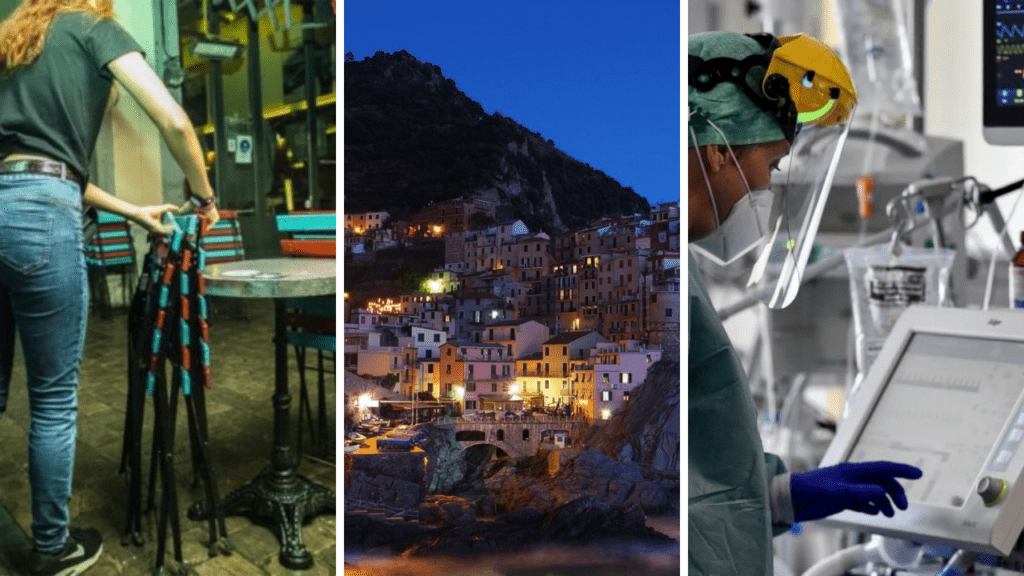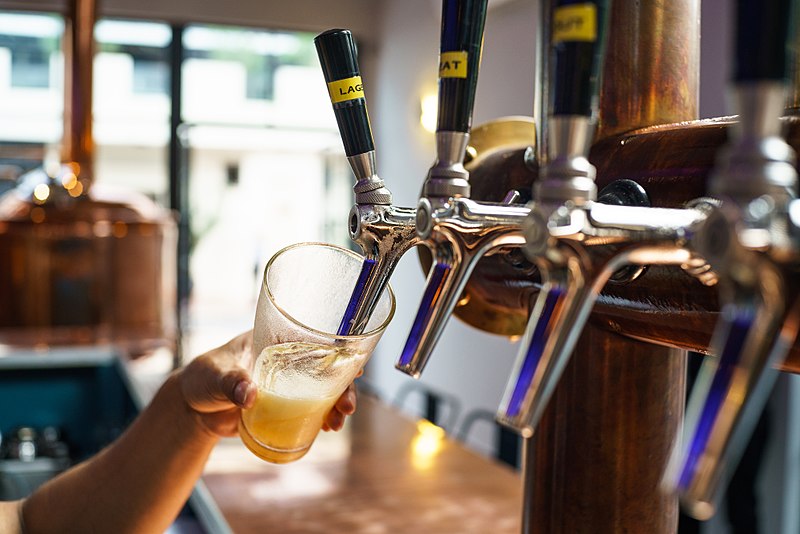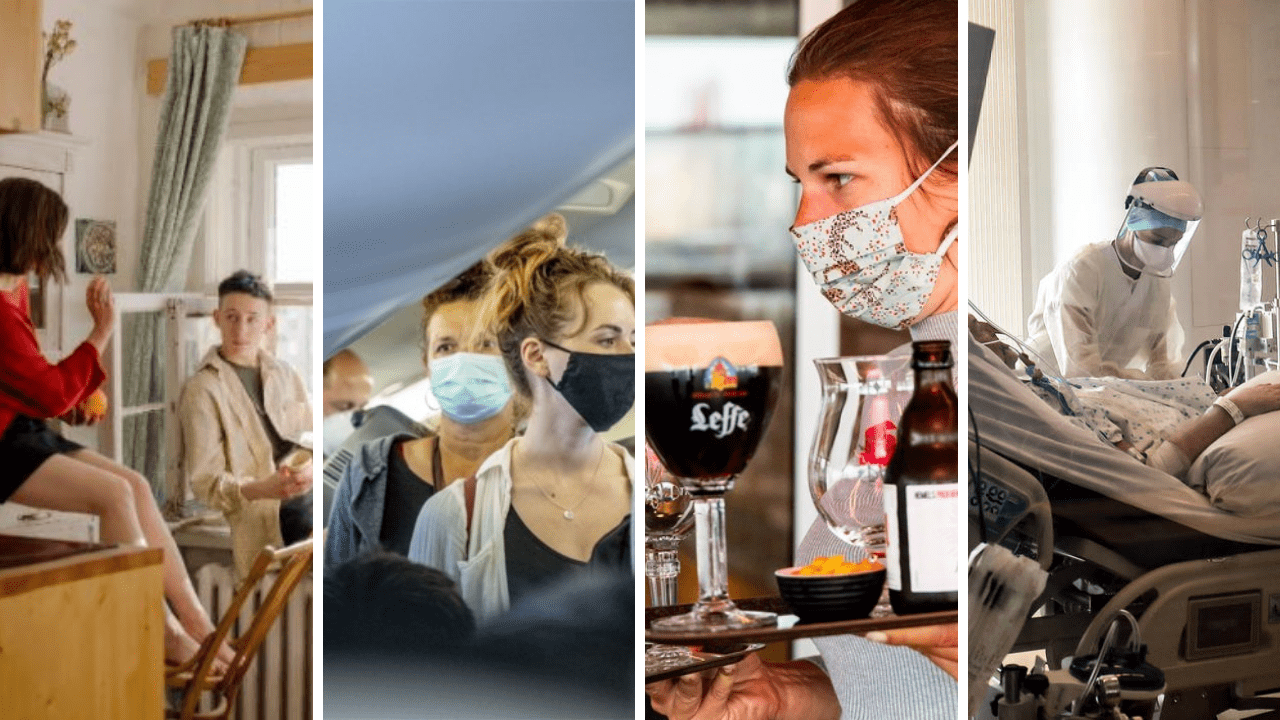The word is in. Marc Van Ranst has tweeted, Erika Vlieghe has spoken to the news, and hospitals and politicians have all made their views on the new measures in Belgium clear.
For the most part, they like them.
"As in Paris, the cafés in Brussels close for 4 weeks. This is a clear signal that the situation is serious. Brussels has an incidence of 527/100,000/14d. Molenbeek: 824; Anderlecht: 548. Good decision!" Virologist Van Ranst tweeted yesterday afternoon.
Marc Noppen, CEO of the UZ Brussel, who said last weekend that all Covid-19 beds in the hospital were starting to get full, welcomed the "courageous decision." Some, however, believe they are good measures, but too late.
“The measures should have come earlier. But it is good that they are here now,” Vlieghe said. “I also think it is important that the new measures are accompanied by an information campaign to reach people of all ages and backgrounds.”
This view was supported by Brussels MP Bianca Debaets (CD&V), among others, she said on Thursday.
"My biggest criticism is that experts - scientists, but also doctors - already sounded the alarm about Brussels this summer, at least as early as August: they said that things were going completely wrong and that action needed to be taken, or we would be heading for disaster," said Debaets.
"I remember that it was only after considerable urging that a Regional Security Council was organised, which was not a real one, because nothing was decided. The Minister-President said that the figures were not yet high enough to take measures, which, in other words, means that he wanted to wait until it was too late."
As many have said, however, the impact of all measures takes weeks to be seen. Two weeks after a drastic step down in measures from Belgium as a whole, we're now returning to strict rules. A lot can happen in two weeks, and not everyone is convinced.
“Just closing the cafes is not enough for me,” Kenneth Coenye at Cliniques Saint-Jean in Brussels said. “I am also not convinced that the problem really lies there.”
So what will happen two weeks after these more strict rules? Who knows. Instead, let's look at the news.
Belgium in Brief is a free daily roundup of the top stories to get you through your lunch break conversations. To receive it straight to your inbox every day, sign up below:
1. Belgium’s list of red travel zones expands again from Friday
More regions in Europe will become red travel zones for travellers from Belgium this week, the Ministry of Foreign Affairs announced on Wednesday.
This means that Belgium will require travellers returning from these zones to be tested and quarantined from Friday 9 October at 4:00 PM. Non-essential travel to red-zone destinations is no longer forbidden, but only “strongly discouraged.” Read more.
2. Early closure for bars but not restaurants: what is the difference?
For restaurants, the coronavirus measures in Belgium do not change, while bars will have to follow stricter rules and even shut down entirely in Brussels. What is the difference?
The risk of infection is greater in bars and cafés – which were described by Federal Health Minister Frank Vandenbroucke as “real infection hotspots” on Tuesday – than in restaurants, according to the government.
“I am sure that, in a restaurant, there will also be a few people who drink too much and start shouting or singing,” Flemish Minister-President Jan Jambon said on Flemish radio. "But these are rather exceptional cases, whereas this happens more often in café life." Read more.
3. Over 1,000 coronavirus patients currently hospitalised in Belgium
Over 1,000 patients are currently admitted to hospital because of the new coronavirus (Covid-19) in Belgium, according to Sciensano’s latest figures on Thursday.
In total, 1,050 coronavirus patients are currently in hospital, which is 98 more than yesterday. Of those patients, 201 are in intensive care, 12 more than yesterday. Patients on a ventilator number 94, nine more than yesterday. Read more.
4. The ‘New Measures,’ simplified
As the Brussels-Capital Region tightened its coronavirus restrictions on the day after Belgium’s new federal government surprised the country with stricter rules, this simplified Q&A should help you keep an overview. Read more.
5. Brexit: UK is ‘ready’ to leave, EU prefers a deal
President of the European Council Charles Michel told British Prime Minister Boris Johnson on Wednesday that it is time for the United Kingdom to “put its cards on the table” regarding Brexit.
The planned phone call came one week before the European Council meets to discuss EU-UK relations and “review the state of negotiations on the future EU-UK partnership”. Read more
6. Coronavirus: Seven in ten nurses at risk of burnout
Seven out of ten nurses are under such increasing pressure of work that they are at risk of suffering a burnout, according to a representative of the profession, speaking on RTBF television.
Arnaud Bruyneel, vice-president of SIZ Nursing, which represents nurses working in intensive care, explained the problem. Read more.
7. EasyJet expects to cut 75% of services for coming months
EasyJet has announced a massive reduction to flights in the coming months as a result of quarantines imposed by the UK on several countries.
The British airline – which is undergoing a major restructuring – announced on Thursday that expects to run only 25% of its operations between October and December, the first quarter of its 2020-2021 financial year. Read more.
Jules Johnston
The Brussels Times



